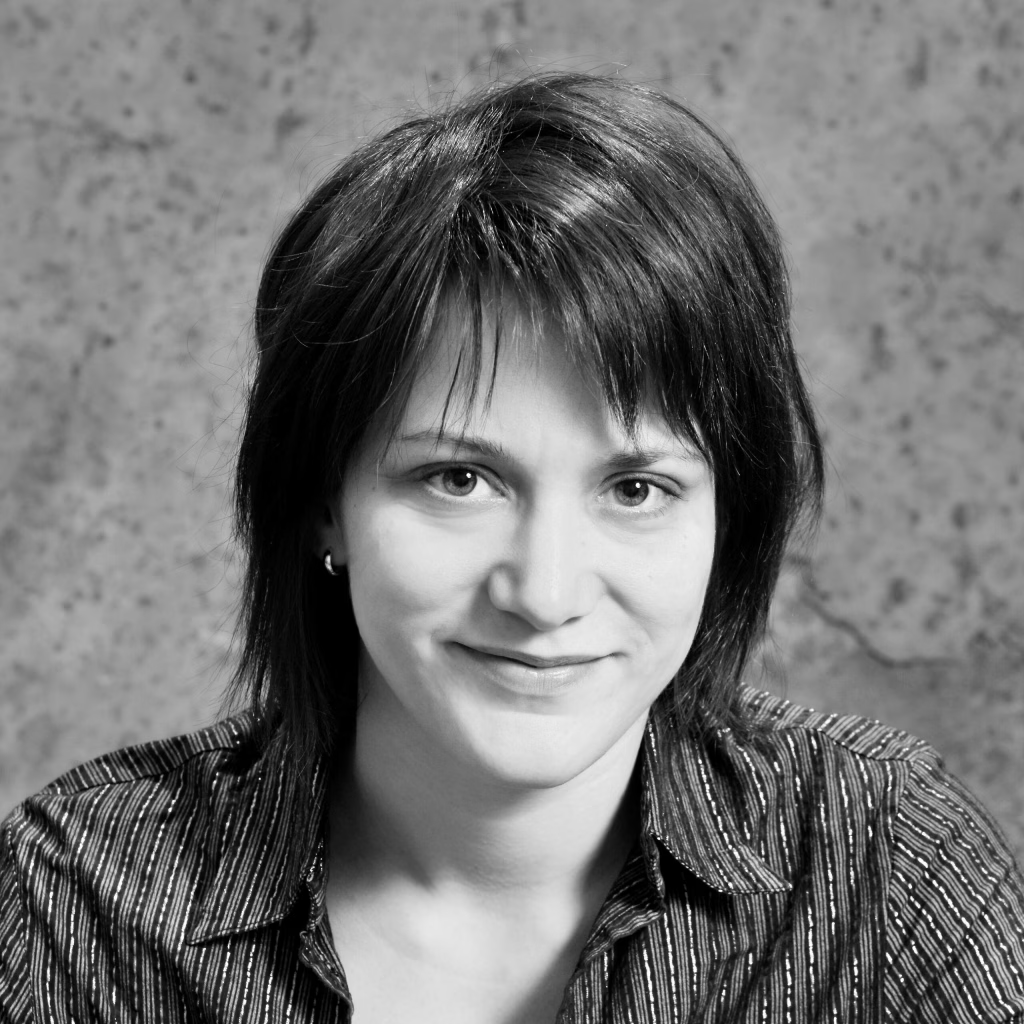
”Somehow reminiscent of Romeo and Juliet”
On March 8th, Almi Hall will host the Finnish premiere of Denis & Katya, an opera composed by Philip Venables and written by Ted Huffman. Based on a true story from 2016, the performances will be directed by Johanna Freundlich, who has also translated the libretto into Finnish. We interviewed Philip and Johanna about the opera’s themes.
Based on a real life tragedy
Philip Venables: In November 2016, the librettist and director Ted Huffman came across a headline on his Facebook newsfeed. Two Russian teenagers had barricaded themselves in a cottage on the outskirts of a city and lost their lives in unclear circumstances. This news story gave us the idea for our next opera.
The story of 15-year-old Denis Murayov and Katya Vlasova made headlines around the world. The teenagers appeared to have run away from home together after a fight with their parents. They hid in a cottage in Strugi Krasnye and live streamed their time there on the Periscope social media platform, all the while engaging with their online audience. After a few days the police laid siege to the cottage, the situation escalated, and the couple died from gunshot wounds on November 16th, 2016. Other circumstances of their death are unclear.
Perhaps Ted saw the news on his Facebook because he’d googled about Romeo and Juliet earlier in the week. The story was tagged with the words Romeo and Juliet.
Johanna Freundlich: I first read about the opera Denis & Katya in the New Yorker, and I remember that something about the story piqued my interest. Though the story is multi-layered and complex, there’s also a certain clarity and simplicity to the opera. Philip drew a comparison to Romeo and Juliet – the teens’ fate is similar to theirs, which immediately captures your attention. The opera was originally written in English, but it will be performed in Finnish for the Helsinki audience.
Denis and Katya’s tragedy took place in 2016, and it’s now spring 2023. In the meantime the opera has enjoyed many successful premieres around the world. Seven years is a relatively short time in the realm of opera. It’s wonderful that opera can respond to themes that resonate with our world today.
Philip: So far the opera has been performed in English, German and French. Translating the libretto puts the story within the context of each country. What’s more, the audience doesn’t have to read surtitles, so we get closer to the essence of theatre. After all, storytelling is at the heart of this opera – the way we tell stories to each other, in real life and online. The opera has six characters: a journalist, best friend, teacher, neighbour, teenager, and a doctor. Each of them brings their own perspective to the story.

– Composer Philip Venables
An opera of our times
Philip: The tragedy of Denis and Katya could have taken place anywhere, not just in Russia. Its events are universal, and that was our starting point for tackling the topic. The themes of voyeurism and the dark side of the internet are also commonplace, at least in Western societies. The events of the opera are plausible anywhere with access to the internet.
In all my work, I try to immerse myself in its framework and ask myself what my role is as the composer. Is there some kind of a meta-level that I could depict with my music? One such meta-level could be the fact that making an opera about such a real life tragedy turns us all into voyeurs. In a way you could say that the opera itself is part of the voyeuristic phenomenon.
Johanna: The creators and performers of the opera are fully exposed to the story and its themes, and that’s why it would be impossible to imagine this opera without an invisible narrator. Of course similar themes are also being discussed in Finland: school shootings and violence are the kind of tragedies that touch lots of people at once. I think that the opera is very empathic towards teenagers and their families. Rather than making direct moral judgments, it allows different voices to be heard.
Philip: While making the opera, we conducted interviews with two people who had witnessed the tragedy from close up. Once of them was Denis’s best friend, the other was a journalist who visited the scene of the incident and wrote a lengthy article about it. The rest of the characters are fictional and their stories were pieced together from various sources, such as news reports and TV talk shows. The libretto also includes excerpts of WhatsApp conversations between Ted and me.
Johanna: Each character interprets the events from their own perspective, dealing with the situation to the best of their ability. One particularly interesting character is the journalist who looks at what happened from the outside and concludes that he didn’t want to be there, he was just doing his job. Despite being terrified, he went to the site out of duty and wrote his story. As a director, I’ve been most profoundly affected by the characters of the journalist and the teacher.

– director Johanna Freundlich
Two singers, four cellists
Philip: In the first opera that Ted and I made together, 4.48 Psychosis, there are six singers and 12 musicians on the stage. It’s quite a large production for a small stage but too small for a big one. That’s why we wanted our next work to be more compact, tourable, and streamlined from a technical perspective.
We already had the idea of two singers before we came up with the topic of the opera. I also have a thing for using groups of the same instrument, and that’s why we went for four cellos. In my opinion the sound of the cello can be likened to the human voice, as its vocal range is quite similar to that of the mezzo-soprano and baritone. The piece doesn’t have a conductor, so the emotional spectrum is conveyed directly from the performers to the audience. The soloists and cellists have set places on the stage. The cellists are sat at the four corners of the stage, which reflects the symmetry that I’ve tried to communicate with my music.
Johanna: Once I’d had a closer look at the score, I knew that Ville Rusanen and Mari Palo would make the perfect soloists. It’s a demanding piece for two singers, with its fast-paced switches of character, perspective, and emotional state. Each production is different, of course, as it’s affected by the people who create and perform it.
Theatre for the imagination
Philip: Though the story is set in the present day and the themes are topical, our aim was to make theatre for the imagination rather than actual docu-opera. We made a conscious decision not to show actual video footage of the events or adopt the perspective of Denys and Katya themselves. Our goal was to create a kind of a role-play theatre.
Johanna: Instead of telling us facts about world, the opera provides us with different points of view and tools for interpreting it. To reinforce this idea, we don’t have the grand stage sets that are typical of traditional operas. Instead, the aesthetic beauty and the horror of the events emerge from the chemistry between the characters, the music, and the myriad of emotions the characters go through. We also took care to approach the harrowing themes with discretion.
Violence and the dark corners of internet
Johanna: The internet is full of gruesome material about Denis and Katya. Did that force you to limit your research?
Philip: Of course, it affected me very personally. More than the imagery, however, I was struck by the brutality of the internet. While creating the opera I stumbled upon dark corners of the internet that I didn’t even know existed.
Johanna: The causes of violent events are often multi-layered. If you had the chance to inspect every microsecond of what happened, you might be able to speculate about the root cause of the final outcome. In my opinion every person present has some kind of an impact on what eventually happens. Of course, in an ideal world, things wouldn’t escalate like this. But when problems start piling up, it’s like an avalanche. It’s impossible to know exactly where the tragedy began and what contributed to starting it off.
On a general level, Denis and Katya makes you think about what it is we’re feeding with our gaze. Sometimes just being a spectator can be enough to influence a chain of events and become part of a phenomenon. Would it sometimes be more appropriate to not look, to not participate? This holds particularly true in the world of the internet.
Denis & Katya premieres at the Almi Hall of the Finnish National Opera on 8 March 2023. The production is part of the Musica nova Helsinki festival and is produced in co-operation with the Taite opera troupe.
Philip Venables is a British-born composer. His two operas, Psychosis 448 and Denis & Katya have been well received by both critics and audiences across the world. Venables is currently working on his third opera. philipvenables.com
Johanna Freundlich is a Finnish director and scriptwriter. She studied directing at Uniarts Helsinki’s Theatre Academy and the New York University Tisch School of the Arts. Freundlich has directed productions for the Finnish National Theatre, the Finnish National Opera, the Savonlinna Opera Festival, and the Fyodor Dostoevsky Theatre of Dramatic Art in Russia.
Interview by PETRA RÖNKÄ
Philip Venables’ photo ÉTIENNE GRANDON
Johanna Freundlich’s photo HEIKKI TUULI
